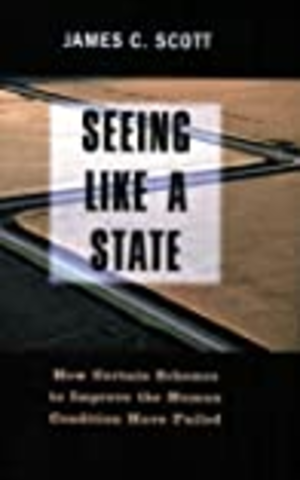
Seeing Like a State: How Certain Schemes to Improve the Human Condition Have Failed
- Book
- 1998
- #Politics #ComplexSystems
Compulsory ujamaa villages in Tanzania, collectivization in Russia, Le Corbusier’s urban planning theory realized in Brasilia, the Great Leap Forward in China, agricultural "moderni...
Show More
Number of Pages: 445
ISBN: 0300078153
ISBN-13: 9780300078152
Mentions
See All
Taylor Pearson @TaylorPearson
·
Nov 13, 2017
- Curated in 5 Most Influential Books
Scott Alexander @ScottAlexander
·
Mar 16, 2017
Overall I did like this book. I’m not really sure what I got from its thesis, but maybe that was appropriate. Seeing Like A State was arranged kind of like the premodern forests and villages it describes; not especially well-organized, not really directed toward any clear predetermined goal, but full of interesting things and lovely to spend some time in.